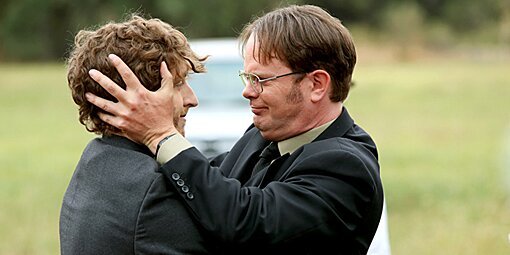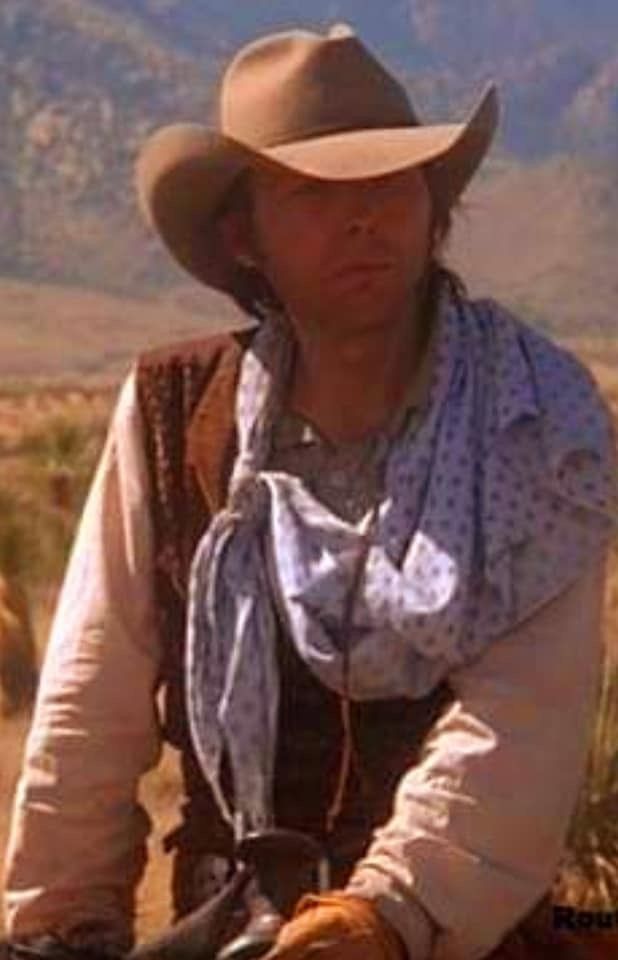#somewhat based on the dwight quote from the office
Explore tagged Tumblr posts
Text
sampo: identity theft isn’t a joke
sparkle: haven’t you stolen like three identities in the past week?
sampo: that’s besides the point
#⌞ ༄ hsr ⌝#⌞ ✩ quantum.queue ⌝#sampo says ‘identity theft but only for me !!’#somewhat based on the dwight quote from the office#sampo#sampo koski#sparkle hsr#hsr#honkai star rail#honkai: star rail#incorrect quotes#kinda?
36 notes
·
View notes
Text
Dwight's Second Life


Dwight Second Life
Dwight's Name In Second Life
Dwight Schrute Second Life Quote
Dwight's Second Life Episode

Everyone's favorite workplace comedy, The Office, is now on Peacock! Watch the mockumentary sitcom about the everyday lives of the workers at Dunder Mifflin, a paper company in Scranton, Pennsylvania.
Second Life is an online virtual world, developed and owned by the San Francisco-based firm Linden Lab and launched on June 23, 2003. It saw rapid growth for some years and in 2013 it had approximately one million regular users; growth stabilized and by the end of 2017 active user count had declined to 'between 800,000 and 900,000'. In many ways, Second Life is similar to massively multiplayer. Describes Second Life,1 an online virtual community.2 Dwight explains that he “signed up for Second Life about a year ago” because “back then, his life was so great he literally wanted a second one. Absolutely everything in Dwight’s Second Life was the same. Except in Second Life, Dwight could fly.”3. Dwight also acts as the Lancer for Gail in her leadership of the Old Town girls. Gail's more vengeful and murderous than Dwight's strategic approach, but Gail's unquestionably in charge and Dwight doesn't forget it for a moment. Woody plays this role against his friend Eric in Quantum and Woody. In Runaways Nico was originally this to Alex. Second Life is always wonderful, sometimes weird, and 100% wow-worthy. Explore Now Remote Meetings Redefined Make meetings fun again with virtual hangout spaces, classes and conferences. For over a decade, leading companies and educators have trusted Second Life for branded social spaces for events and remote meetings.
Second Life is not a game: it is a multi-user virtual environment. It doesn't have points, or scores, or winners, or losers.

'Oh, it has losers,' our somewhat geeky hero Jim states, watching his co-worker and erstwhile beet farmer Dwight play Second Life. The Office has also prominently featured Call of Duty in a past episode, so having the sitcom wander into the world of gaming isn't a big surprise. While the appearance of Second Life may seem random in last night's episode, if you think about it, the story is pretty sad.
Dwight just lost his girlfriend after mercy-killing her cat Sprinkles, and now has to watch one of his co-workers put the moves on her. When this all gets too much to handle, he retreats into Second Life, where his name is Dwight Shelford, his job is selling paper, but he can fly. It's like role-playing yourself with one notable super-power.
It's a game reference that's in-character, makes sense, and is also strangely bitter-sweet. This is yet more evidence that Second Life is the lamest game with the absolute best PR team.
Frank's Thoughts
As though I didn't love The Office enough as it is, the nods to the gaming world are much appreciated. I'm glad to see the show tackle games that aren't necessarily the 'obvious' choices: god forbid World of Warcraft makes an appearance. I will say this, though: not having hour-long episodes every week makes me sadface.
By/July 8, 2019 5:43 pm EDT
The Office may have shut its doors in 2013, but Rainn Wilson's hilarious portrayal of Assistant (to the) Regional Manager Dwight K. Schrute remains a part of the pop culture consciousness. After all, Dwight is a hard-hearted geek, a wannabe martial artist, a neo-fascist salesman, and an absolute lapdog to Regional Manager Michael Scott, and Wilson's performance created one of the most well-loved misanthropes in TV history.
Initially based on Gareth Keenan (Mackenzie Crook) of the original UK version of The Office, Schrute went on to become his own unique freak. He's the kind of guy who distrusts everyone but Michael, yet he's willing to believe faxes from Jim Halpert claiming to be Dwight from the future. He's loud, intense, and a hilarious collection of complex contradictions that combined to make one of television's most memorable dunces. However, even though Dunder Mifflin might have closed down a while ago, there's still a lot you might not know about the owner of Schrute Farms. From who almost played the character to the ways art wound up imitating life, here's the untold truth of Dwight Schrute.
Dwight Schrute could've been Seth Rogen
Dwight Schrute and Rainn Wilson seem as inseparable as beets, bears, and Battlestar Galactica. As difficult as it is to imagine anyone other than Wilson playing Dunder Mifflin Scranton's fire safety chief, it's utterly impossible to contemplate what would've happened if one famous comedian who auditioned for the role had actually gotten it.
In 2013, the final season of The Office was released on DVD, and included in the extras is a short video revealing some of the actors who auditioned for the series. Among other noteworthy surprises, Bob Odenkirk of Better Call Saul fame auditioned for the role of Michael Scott, Kathryn Han tried out for Pam, both John Cho and Adam Scott took a crack at Jim Halpert. But perhaps most surprising of all is that Seth Rogen tried his best to land the part of Dwight Schrute.
We don't see much of Rogen in the clip. He talks about the benefits of cleaning someone's wounds with urine, and then the video moves on to Odenkirk doing Michael Scott. But what we do see of Rogen makes it clear he wouldn't have been within a galaxy of the same character Wilson gave us. Reading the same line, Dwight would be obnoxious and condescending, speaking as if he were delivering the lesson to a child. Rogen seems absolutely likable, not very bright, and not at all Schrutish — kind of like Kevin the accountant if he knew a few more factoids and was awake for more of the day.
Rainn Wilson wanted to be the regional manager
Throughout the course of The Office, Dwight Schrute both worships Michael Scott and has ambitions for his office. And in one of the many ways in which life imitates art, Rainn Wilson didn't initially audition for the role of assistant (to the) regional manager. He wanted to be the big dog himself.
Much like Bob Odenkirk, Wilson went into his audition taking aim at the role of everybody's favorite regional manager, Michael Scott. Alas, it wasn't to be, possibly because, as Wilson puts it, his audition amounted to a 'terrible (Ricky) Gervais impersonation.'
Considering how amazing Wilson is as Schrute, as well as Steve Carell's success as the equally clueless Michael Scott, it's probably for the best. It might be interesting to take a peek in the alternate reality where Wilson got cast as Michael Scott, but it's not interesting enough to stay there. Although, we'd definitely love to hear that Gervais impression.
Both Dwight Schrute and Rainn Wilson have the strength of a little baby
When Michael Scott calls his employees into the conference room for an impromptu group therapy session in season three's 'Grief Counseling,' Dwight Schrute tells one of the most insane stories to ever come out of his face. While most of the office is tight-lipped, Dwight volunteers a grotesque tale about his birth. He claims he shared his mother's uterus with a twin, but that he 'resorbed' his counterpart, effectively killing it. Schrute says he doesn't regret the in utero murder because it gifted him with the superhuman 'strength of a grown man and a little baby.'
It doesn't seem coincidental then, that Rainn Wilson takes the first five paragraphs of his 2016 memoir The Bassoon King to describe the 'doughy giganticness' of his head at birth. The first line of the book reads, 'I had the biggest, fattest head of any baby that was ever born into the human species.' He describes his infant dome as a 'white, bloated, Macy's Thanksgiving Day parade head,' says he looked like 'Louie Anderson with the head of E.T.,' and describes his younger self as a 'Jabba the Hutt-like infant that sounds like a calf being strangled by an octopus.'
It doesn't seem like a huge leap to imagine Wilson has a few issues with his family's baby photos, and that those issues were possibly reflected in his character's story about 'resorbing' his twin like a tiny cannibal.
Dwight Schrute almost took us to The Farm
In January 2012, Deadlinereported NBC was considering an Office spin-off with Rainn Wilson starring as Dwight Schrute. The Farm would've been a family comedy in a setting Office fans had grown familiar with over the years: Schrute Farms. Among others, the series would have featured Matt Jones (a.k.a. Badger from Breaking Bad) as Dwight's cousin Zeke, veteran character actor Tom Bower as Dwight's Nazi Uncle Heinrich, Thomas Middleditch of Silicon Valley fame as Dwight's Bigfoot-hunting brother Jeb, and Venezuelan-born Majandra Delfino as Dwight's sister Fannie. Of course, Michael Schur would reprise his role as Dwight's creepy, neck-bearded cousin Mose.
For better or worse, The Farm wasn't meant to be. In October 2012, Wilson tweeted the news that NBC had passed on the series, although he'd 'had a blast making the pilot.' The pilot for The Farm was then recut as a single Office episode in the show's final season. But would that story have worked as a full-fledged series? It's hard to say, but Vulture writer Matt Schimkowitz notes that Dwight's popularity came mainly from him acting as an antagonist to Jim Halpert. Making him the lead in a comedy series about a disjointed family that he's expected to bring together changes Dwight's role dramatically to 'the likable hero we've never seen.' In other words, maybe it's best that we never visited The Farm.
Dwight Second Life
Schrute Farms is real.. sort of
When Dwight lures Ryan to his farm in season three's 'The Initiation,' it's little more than a beet farm where teens like to hook up. But by the time Jim and Pam visit in season four's 'Money,' Schrute Farms has been transformed into a bed and breakfast. In spite of a slight overabundance of manure-related activities, Pam and Jim leave a glowing review for Schrute Farms on TripAdvisor. We're led to believe this is mostly because the couple feels sorry for Dwight after being subjected to the loud, sorrowful moans he falls asleep making every night since his split with Angela.
If you're an Office fan this is all old news to you. But what you may not know is that while The Office is over and The Farm never got to materialize, TripAdvisor has made Schrute Farms a reality. Sort of.
That's right. TripAdvisor maintains a page for Schrute Farms, listed as a bed and breakfast in Honesdale, PA. Apparently, you can actually book a stay there, though, we have no idea where you go if you bother doing that. The farm currently has over 1100 reviews giving it a rating of 4.0 or 'very good.' Some of the more recent reviews include 'visitors' calling the farm's beets 'Elvis in plant form,' praising Dwight's power drink 'made from beet runoff,' and happily proclaiming, 'I couldn't have been more satisfied (that's what she said) with my stay.'
Schrute Space

From his obsession with having a second Second Life to his epic sales struggle with a (supposedly) self-aware A.I., Dwight is well-known for some of his online shenanigans. What you might not know is that Rainn Wilson used to maintain a blog in Dwight's voice. Unfortunately, it doesn't exist anymore, but NBC used to host Schrute Space, which let fans read Dwight's thoughts on different Scranton radio stations or his invaluable martial arts tips. While NBC eventually opened the blog up to the masses, it started as something that existed exclusively on the set of The Office.
The computers on The Office https://mexhunter976.tumblr.com/post/658079246720368640/go-to-spotify. 's set were networked together, and Wilson would write the Dwight-voiced blog while scenes were being the filmed so the rest of the cast could enjoy it. Wilson told The Morning Callthat during the filming of the pilot episode, 'The producers saw (the blog) when they walked by and thought it was funny.' A few emails later between NBC and Wilson, and Schrute Space was born. Now, if only NBC would bring it back, the world would be a better place.
WooCommerce Store Themes range from general purposes templates to niche specific ones for stores like beauty, fashion, wedding, electronics, cars, tools and equipment, healthcare, gifts, sport, education and books, and many others. WordPress themes for WooCommerce, your business, and your blog. Sign up for free Get access to customer-only benefits. Theme Store WooCommerce - the most customizable eCommerce platform for building your online business. Get Started 30 day money back guarantee; Support teams across the world. WooCommerce Shop Page template hierarchy page-$slug.php – the most priority file, by the way it allows you to set a custom page template for your Shop page, just specify the page slug in the file name, like page-shop.php or something like that. Overview WooCommerce template files contain the markup and template structure for frontend and HTML emails of your store. When you open these files, you will notice they all contain hooks that allow you to add/move content without needing to edit template files themselves. Woocommerce shop page template. To use a page template: Go to Pages Add New. Or edit an existing page. Add a title to your page.
Dwight Schrute was almost assistant to the president
Over a decade ago, Senator John McCain — then the Republican candidate for the United States presidency — appeared on The Daily Show with Jon Stewart. When asked if he'd picked a running mate, McCain apparently didn't remember the character's name, but the senator joked his vice presidential pick would be 'that guy from The Office.' Host Jon Stewart clarified for viewers, 'You heard it here first, Dwight Schrute.'
About a week later, Dwight Schrute responded. Appearing as a guest on The Tonight Show with Jay Leno, Rainn Wilson read from a list addressed to McCain. Schrute agreed to be McCain's running mate, but only if his demands were met. The demands included a flamethrower, an Iron Man suit, government research into beets as an alternate fuel source, and the right to use Air Force One whenever he wanted (with the added note that, while he piloted Air Force One, he was only to be referred to as 'Iceman').
Dwight's Name In Second Life
Obviously, it was all just a joke, so we never got to see Dwight retool Mussolini speeches for press conferences at the White House Rose Garden. It's regretful not only because of the lost comedic potential, but considering who McCain ultimately chose as a genuine running mate, it isn't like Dwight could've done any worse.
The Bassoon King
In 2016, Rainn Wilson's memoir The Bassoon King: Art, Idiocy, and Other Assorted Tales from the Band Room was released, and like many nonfiction books, a different author was invited to write the foreword. Namely, the foreword is credited to 'Dwight Kurt Schrute,' and it's written entirely in Dwight's disdainful voice.
Schrute spends the first bit of the foreword discussing why he's agreed to write it, which he clearly doesn't want to do. He explains, 'When someone asks me to do a task, the first thing I do is determine whether the request is some sort of trick.' The job of writing the foreword survives his exacting vetting process only because Dwight can't 'adequately determine if this request is a trick.' He tells us he doesn't like The Bassoon King or any books that involve 'funny stories' regarding some stupid actor,' but he then proceeds to list a long number of exceptions (books by Charles Bronson, any Game of Thrones cast member, Sam Neill, Dolph Lundgren, etc). Dwight calls Rainn Wilson a 'laughable idiot,' and eventually reveals he has only agreed to write the foreword for the money.
Before turning things over to Wilson, Dwight gives us some other book ideas like Mennonite Ghost Stories, a 'fun games for kids' book titled Hold This Book over a Candle, and the revealing Conspiracy Theories: Who's Really Behind Them? Seriously, we'll take a whole book written by Dwight, please.
Dwight Schrute and the next generation
Even though he's gone, he's not forgotten, and the legend of Dwight K. Schrute lives on. On Halloween 2016 — a little over three years after The Office's finale aired on NBC — Jenna Fischer tweeted a photo sent to her by a fan of a pint-sized version of Dwight Schrute.
Dwight Schrute Second Life Quote
With a disapproving scowl and Schrute's signature hairstyle, Toddler Dwight wears a yellow short-sleeved dress shirt, a sticker announcing 'Hello, My Name Is Dwight Schrute,' and holds what is presumably a carefully grown Schrute Farm beet. Behind him, a blackboard leans against the wall and spells out one of Dwight's early and memorable lines: 'How would I describe myself? Three words: hard working, alpha male, jack hammer, merciless, insatiable.' Of course, if the young Dwight happened to put the words up himself, then his age and comparative lack of schooling gives him more excuses than the original Dwight for not knowing the difference between three words and eight.
Dwight's Second Life Episode
Even though it's one of the most popular shows on Netflix's streaming service, The Office will sadly leave Netflix in 2021. Still, it seems inevitable that younger fans will come to know the joy that is The Office, including the nuggets of Dwight Schrute's invaluable wisdom like, 'When someone smiles at me, all I see is a chimpanzee begging for its life.' Expect more unsmiling alpha males to become fans of the beloved beet farmer for years to come.

0 notes
Text
The Office: 10 Jokes That Have Already Aged Poorly | ScreenRant
The Office is one of the most beloved sitcoms of all time. The series ran for nine seasons on NBC and helped launch the career of beloved actors like Steve Carrell and John Krasinski. It had a pretty basic premise, simply based around the lives of a paper company and the day-to-day activities at the office.
Related: 10 Super Relatable Quotes From The Office
What made it unique was its mockumentary style of filming, it's sharp writing and the heavy satire. Michael Scott was the worst boss you could have and Carrell played him to perfection, often becoming the butt of every joke. However, there were some jokes that have aged pretty poorly.
10 The name tag game

Many people remember "Diversity Day" as it was one of the early standout episodes of the show. There are some great jokes in the episode and cunning commentary, but there are also some moments that have aged terribly. The concept of the episode is for everyone to learn how to be more "open to diversity." In order to do so, they get labels of different races and religions placed on their forehead.
The characters then have to try and figure out who they are based on clues given by others. Some of the more offensive moments in the episode involve heavy racist stereotyping.
9 Hot Girl

Did you know that Amy Adams once guest-starred in an episode of The Office? You could be forgiven for forgetting since the episode she was in was one of the worst in the entire series. Season one of The Office was poorly received, to begin with.
The entire concept of the episode is simple: Amy Adams's character is perceived as hot and so Michael and Dwight spend the episode acting extremely inappropriate towards her. In a time where workplace harassment is a hot topic, this episode would certainly not have been taken lightly if it aired today.
8 Michael's treatment of Toby

Speaking of workplace harassment, it's hard to think of Michael's treatment of Toby as funny nowadays. The joke already got somewhat old on the original series after a while. It got particularly bad when Michael wished Toby dead and also said he would rather shoot Toby twice than Hitler or Osama Bin Laden.
Related: 10 Quotes From The Office That Are Still Hilarious Today
Of course, the point of many of these jokes is to make Michael seem like the butt of the joke. The series is aware it's crossing a line twice. That said, the way Toby was treated doesn't quite sit well when rewatching the show back.
7 The outdated technology

Some jokes from The Office didn't age poorly because they were offensive but simply because they refer to things no longer in existence. In one Christmas episode, Michael buys Ryan a "video iPod." Try explaining that to someone from Generation Z. There are several jokes about iPods on the series actually because when The Office first came out, it was one of the hot items on the market.
iPods aren't even made anymore, especially not the Shuffle or the other versions. It's funny to look at some of the other equipment they used then too like the bulky televisions instead of projectors or the old cell phones.
6 Ping

The point of many jokes surrounding Michael Scott's character was to highlight his stupidity. You were supposed to laugh at him and not with him. However, when Michael created the "Ping" character, it went a step too far and has certainly aged extremely poorly. Ping was a racist caricature of an Asian delivery man.
Related: The Office: 5 Romantic Relationships Fans Approved (& 5 They Rejected)
It involved all the terrible things you often see associated with racist jokes and stereotyping. Such a depiction would probably not even make it to the air if it had been written the same way today. To make matters even worse, Michael also wore a pair of glasses that made him "appear more Asian." This can definitely be seen as racist.
5 Michael's Chris Rock impression

This was another cringe-inducing moment from the second episode, "Diversity Day." In it, Michael decides it would be a good idea to do an impression of comedian, Chris Rock. To make matters even worse, he actually repeats, verbatim, the original Chris Rock sketch from the 1990s in which he uses several racial slurs.
The words are bleeped out in the episode but it's clear what Michael is saying and everyone is shown to be adequately shocked by his behavior. It was unnecessary at the time and has certainly only gone on to age poorly since it was originally aired.
4 Kelly's false accusation

In one episode, Kelly makes a comment that she was raped as an excuse to get out of something. Michael claims that she can't just say that to make all her problems go away. Given how big the #MeToo movement is and how we live in a time where believing women is more important than ever, making such a crass joke about false accusations doesn't sit right watching it now.
Related: 10 Best Episodes Of Schitt’s Creek According To IMDb
It has certainly aged poorly, as have many different aspects of Kelly's character given her tendencies to be overtly creepy towards Ryan. The same can be said for Michael's treatment of Ryan.
3 Dwight opens a gym

Dwight opening a gym wasn't a bad storyline but he does make a joke about how he will get it to become profitable that has certainly aged poorly. He says that the way to make a successful business is to get "all the black people to do it first" and then the white people will follow and then you get the black people to stop doing it.
Related: The Office: 5 Perfect Jim & Pam Moments (& 5 That Might Make Us Question Their Romance)
You can see how a joke of that nature would likely not sit well with people who watched the show in today's climate, nor was it appropriate then.
2 Nate dresses as a minstrel

This joke is very small and doesn't actually get played out in full as Dwight decides to cancel it but it's surprising the show thought it was a good idea at all. In Dwight's Christmas he comes in dressed as a Krampus-style figure and his assistant, Nate is dressed as a minstrel in full blackface.
Blackface is never a smart move, it's always offensive. Luckily, Dwight decides to cancel the event but we still see Nate dressed up as he answers his cell phone and then turns back to discard the outfit.
1 Michael outs Oscar

Michael outing Oscar was a pretty big deal on the show and Michael was rightfully portrayed as the bad guy. The joke of the entire thing feels far more cringeworthy when watching it back now. We know that many gay people are still beaten and killed for simply existing.
Outing someone against their will and without their consent is a pretty terrible thing to do. Even though Michael is meant to seem awful when he does it, it's still clearly a joke that hasn't aged well with time.
Next: The Mindy Project: 10 Cameos From The Office Cast
source https://screenrant.com/office-jokes-aged-poorly-tv-show/
0 notes
Text
I met this pseudo civil rights enthusiast when I was in varsity who was slightly older than me, who enjoyed narrating what sounded like made up stories to me. He would start his ‘Him against all the powers that oppose black excellence’ tales with a line I was unfamiliar with at the time but later grew fond of: “Once upon a time in the projects”. I later learned that this was a line from an American stop-motion animated sitcom created by Eddie Murphy called The PJs. This line coming from a show adapted from the lives of black people was as genuine as any of his “black-love” inspired theories could go. Well, this is not about him but I do hope that wherever my dear friend is, he has embraced some ideology that is at least aligned to who his authentic self is.
Today we discuss Edcon, and like my dear friend did many a times, allow me to start with these beautiful words: “Once upon a time in the projects ...” in this case not The Projects but the world of Private Equity Buyouts. The story of Edcon began many moons back, on the 6th of September 1929 when the first Edgars store was opened in Joubert Street in Johannesburg by Eli Ross to be exact. Fast forward to close to a century later (just nine years shy off the century mark) where Edcon has over 1400 stores in more than 5 countries and has ten retail brands under its wings. This definitely sounds like one hell of a business case, a strong contender for the “started from the bottom” growth award don’t you think? So how did they get it wrong? Where did they go wrong?
I’m going to skip the rousing details of the beautiful struggle that was building a Retail giant like Edcon between 1929 and 1946 (when Edgars was listed on the Johannesburg Stock Exchange), and from 1946 to just before Bain Capital acquired it in 2007 to avoid throwing you in a whirlwind of thought created by being fed too much information (no such thing exists though). I’m going to talk to the Edcon that existed just before the Bain Capital deal, which surely has to be the most alive Edcon any of us can remember right? When I say “any of us” I am not expecting all the ones below 30 to have a clue of what I am referring to, but for those that do let’s go down memory lane quickly. It’s the 8th of February 2007 and Edcon has just released a statement about the R25 billion takeover deal that Bain Capital has just offered it in a “cut the charity nonsense, we are going private” buyout deal that would essentially mean that Dwight Poler and his guys were taking over Edcon, and not just that but they were taking it private (delisting it off the Johannesburg Stock Exchange). The headline was “South Africans love to shop – and to sell” when the US based Bain Capital clinched the biggest retailer in South Africa in one of the biggest private equity deals on the continent. The deal was structured mainly through the combination of two debt instruments that were denominated in Euros which were due in 2014 and 2015 respectively, debt is cheaper than equity so this was not a problem, all Edcon needed to do was grow.
In all the euphoria and overdose of serotonin levels that were most probably present in the boardroom as this deal was being signed, no one could have imagined that there would be an economic crash the following year. But beyond all of that, no one thought of the nightmare that would come with juggling revenue that is reported in Rands on one hand, and debt that is denoted in Euros on the other (currency and interest rate risk). The economic crash of 2008/9 led to three main things that would start the slow fall of the Edcon group (I think now is the right time to cue the Coffin Dancers theme song, let it play along in your mind as we slowly layout this painful demise): The depreciation of the Rand, the increase in interest rates (in an attempt to decrease inflation), and the impact on the consumer which led to a decline in economic activity. What Edcon relied on to service its debt was slowly dying off and now they were sitting with an enormous issue in their books, literally.
This is becoming somewhat of a sad story right? Not in the slightest. I need you to understand that the Edcon growth phenomenon that I likened to Drake’s song earlier on in the piece is not all based on organic growth, a large part of this was through the monopolisation of the Retail Market through the somewhat dotted but clear lines between the Retail and Property sectors. High rentals of retail spaces in places like malls meant that to compete against the likes of the Edcon group and Woolworth’s one had to have large monetary muscles to flex when needed, but if not then you were just never going to compete against such retail giants. This led to the large portion of retail floor space in these kinds of settings going to groups like Edcon, ever wondered why the space of an Edgars or a CNA at the mall is the size of the complex down the road where you buy your bread? But even beyond that why it is 3x and even sometimes 4 or 5x bigger than the size of other retailers in the mall? That’s what I am referring to, because they could afford to rent out that much space in the mall.
Edcon then slowly started infusing a model that was “misaligned” to its South African market. They introduced foreign brands like Mango, House of Dereon, Salsa, Diesel and many others under the notion that the South African market was looking to upscale the “quality” of their buying choice. A company that catered for LSM’s between 2-10 was attempting to sell high premium brands to its customer base which then led to a steep decline in sales. Edcon saw a consistent decline in sales over the years and in 2012 they needed a bit of breathing room; remember that debt that we spoke about earlier? It was still around, and it was making it hard for them to breathe. Their next move was to sell off R10 billion of this debt to ABSA, this made sense as a desperate cash injection measure but for a group like Edcon that also survives off of its credit book this meant that its movement around the use of credit to generate more revenue was going to be restricted now that they had handed over a bit of control to ABSA. Oh my dear Edcon, you are like a troubled teenager, reeling from the consequences of one bad decision after the other every single night (I am imagining that the song is still playing and we now see the faces of the Coffin Dancers in our minds).
So a company that survives off of its debt book cannot fully utilise it because those who are already in it can’t increase their credit purchases due to ABSA’s stricter measures and the new customers that it’s attracting are not responding well to the new international brands. This presented a bit of a conundrum for Edcon, but their problems were about to get even bigger. Enter Zara, a Spanish based retailer with hopes of branching out into the well sought after African markets. The Inditex Group had introduced their premium clothing stores to South Africa through the opening of their Sandton City (Johannesburg), Gateway Shopping Centre (Durban) and Tygervalley Shopping Mall (Cape Town) stores. The Sandton City store opened towards the back-end of 2011 and the Durban and Cape Town stores followed close after in 2012. Here was a retailer with enough monetary strength to stand against the giants and actually foot the outrageously expensive rentals charged by malls. Edcon was now not just fighting against a debt issue, a control over existing debt issue, a declining sales due to poor market reaction issue but also against the emergence of powerful competitors.
Like any troubled South African retailer caught in the belly of a contracting retail market, Edcon chose to expand into Sub-Saharan Africa. They moved into the Zambian and Mozambican markets with the hopes of diversifying some of the risk they had sitting on their books from their over-reliance on the South African market. Expansion works really well for companies when it is not done out of a desperate need to solve issues that need a more strategic restructure, as opposed to an operational one. This wasn’t at all bad, there was definitely value in branching out into other countries, this to date has seen them grow their presence into eight African countries (Namibia, Botswana, Lesotho, Ghana, Zimbabwe, Swaziland and the two that we mentioned above). While Edcon is doing a road trip through Africa searching for hidden treasure, back here at home we know we’re edging ever closer to the maturity dates of the two debt instruments that were used in funding the buyout. Do you think Edcon had enough money to pay back those Euro denominated debt instruments? You guessed right, they did not. The payment terms around the debt instruments were renegotiated and pushed back.
The debt levels had risen so heavily that it was no longer an Edcon issue but a Bain Capital issue. You know how in the world of credit the notion is: “If you owe the bank $100 that’s your problem. If you owe the bank $100 million, that’s the bank’s problem”, this is what Bain Capital was sitting with. An “ever-fixed mark” if we are going to quote Sonnet 116 and be poetic about this debt. So what happened next? The biggest private equity union on the continent ends in a not so bitter divorce in 2016, which saw Bain Capital handing over Edcon to Creditors in a debt-for-equity swap that reduced Edcon’s debt burden from R26.7 billion to R6 billion. This then led to some new developments at the Edcon offices as they were attempting to use their new found “freedom” to do better. They sold off Legit for just over R600 million, moved towards delinking their stores from the unnecessary international brands that they had partnered with, and getting the assistance of a more risk-tolerant RCS to buy back their debt book from ABSA. They were in the midst of a cost cutting exercise, which meant that growth would be halted a bit while they focused on getting their affairs in order.
In 2018 they went on to restructure their rental overhead expense by re-adopting the traditional model of having all brands in one house, this was an aggressive attempt at decreasing the size of their rental cost which essentially is not the easiest thing to do when an agreement is binding. This meant that contracts wouldn’t be easy to get out of but beyond all of that was the underlying issue around the exposure that the Retail Property Market was sitting with, almost everyone was exposed to “Edcon Risk” in some form with them renting out almost 10% of all Retail Space in South Africa (including mainstream mall space). In 2019 Edcon received a R2.7 billion bailout from the Public Investment Corporation, in an attempt to protect (I would encourage you to read this as ‘stall’) the impact to Edcon employees and the Retail Property Market, this came after the company had struggled to firmly get back on its feet after the exit of Bain Capital. In the beginning of 2020 Edcon went on to announce that it had sold off the CNA chain of stores to Astoria Investments, this was all in the bid to refocus on its core business through the realignment of its retail brands and operations.
Then came the CORONAVIRUS (the song has reached the build-up point now and we are definitely just about to witness the Coffin Dancers dance) and everything is turned upside down. A company that had been struggling to find its feet since 2009 was now thrown into the midst of a pandemic, there’s absolutely no way one can grow out of this now. Edcon had no choice when it came to the year 2020, they HAD to get it right. It was either that or close shop, well that’s not a far-fetched thought right now if one considers that Edcon filed for Business Rescue about two days ago due to what Grant Pattison (CEO) and the Edcon Board call ‘a R2 billion loss due to the virus’.
If there’s anything I would hope you picked up from this tale I just told, it has to be that Edcon’s issues have been long brewing. Here’s a company that has year-after-year (with a striking level of consistency) made one bad decision after the other or try make a good one in attempting to lessen the blows of the bad one they had made the day before, Edcon caused their own demise. Their Bain Capital debt issue coupled with a lacklustre approach to innovation and market response in terms of product offering, and a stale business model undid this beautiful story. Do I think this is the end for Edcon? Probably not, they’ve christened companies like Edcon “too big to fail” but we have demystified that myth. The truth is Edcon currently sits in a better position than it has in more than 10/11 years based on its Balance Sheet. But it is still not banking any profit and that is where your issues lie. If they fix their profitability issues then they are well on their way to fixing Edcon, how do you do that without dismantling the whole Edcon model and structure as we know it? That right there is a topic for another day dear friend. At this very moment the Coffin Dancers have concluded their dance and I should definitely be on my way.
1 note
·
View note